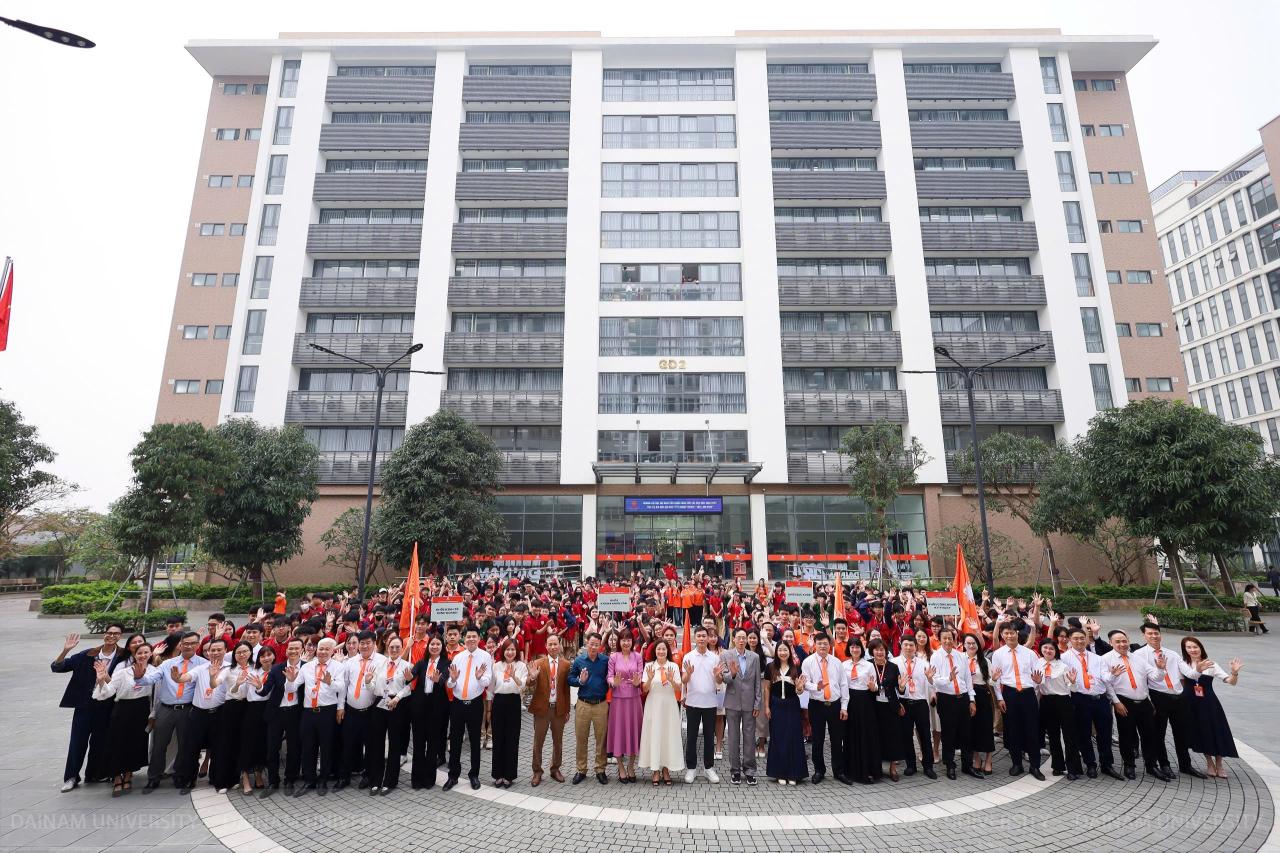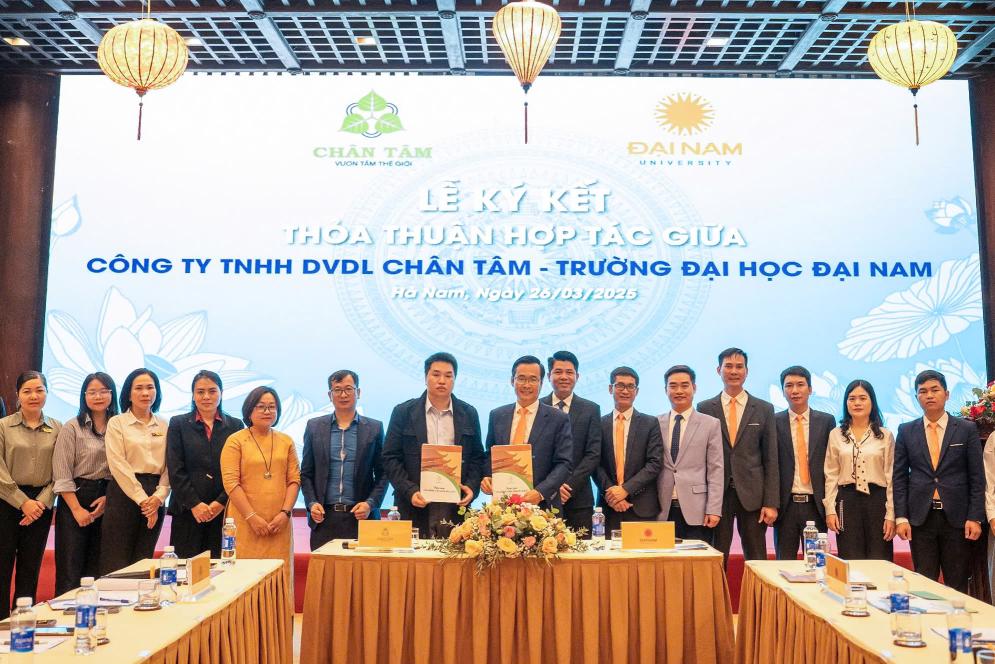Discussion on accounting training methods according to international financial reporting standards
Posted date 29/11/2017
12.586 view

To meet the requirements of international integration in the field of accounting, the Ministry of Finance has oriented and built a roadmap for applying IFRS in Vietnam. Accordingly, the system of accounting standards will be built in line with the system of international financial reporting standards. When the legal framework on accounting changes, the quality of the accounting workforce must also change accordingly.
Dr. Le The Anh
SUMMARY
To meet the requirements of international integration in the field of accounting, the Ministry of Finance has oriented and built a roadmap for applying IFRS in Vietnam. Accordingly, the system of accounting standards will be built in line with the system of international financial reporting standards. When the legal framework on accounting changes, the quality of the accounting workforce must also change accordingly.
The quality of accounting labor resources plays an important role in the successful implementation of IFRS in the actual operations of enterprises. The cooperation of state management agencies and professional organizations, especially accounting training institutions, will improve the quality of this workforce. Within the scope of this article, to improve the quality of accounting labor resources, training institutions need to synchronously implement many solutions such as: innovating training programs, innovating criteria for assessing learners' capacity, enhancing professional skills practice through experience in virtual practice rooms, orienting learners to research and understand the nature of economic activities and creatively applying accounting principles according to IFRS.
Keywords: IFRS training program, accounting integration, accounting method innovation, accounting art
1. Introduction
Since the transformation of Vietnam's economy into a socialist-oriented market mechanism, the accounting system has undergone many innovations. However, the accounting system and accounting standards issued since the year 2000 have many contents that do not reflect the newly emerging economic activities of the economy. Therefore, the Department of Accounting System - Ministry of Finance and specialized agencies, universities, and research institutes have spent a lot of time researching to build and apply the system of international financial reporting standards (IFRS) suitable to the characteristics of organization and management of the Vietnamese economy.
The International Financial Reporting Standards (IFRS) is a set of accounting standards designed and developed by an independent, non-profit organization called the International Accounting Standards Board (IASB). IFRS focuses on the most general guidance and interpretation on how to prepare financial statements rather than establishing specific industry reporting rules. The IFRS system is widely applied in developed countries. According to statistics from the IFRS Foundation, as of 2016, there were 131 countries in the world applying international financial reporting standards, including countries that have just started applying them, and countries that apply them partially or completely. Financial statements prepared according to IFRS aim to provide information about the financial situation of enterprises to investors to become more transparent, contributing to the stability of the financial market. At that time, accounting truly becomes a powerful tool for business management instead of accounting just completing reports as required to fulfill the tax obligations of the business. The research results were announced at the scientific conference "Innovation in training methods, updating accounting teaching curriculum in line with the requirements of accounting reform in the new period" organized by the Ministry of Finance on July 7, 2017 at the Banking Academy in Hanoi, showing the benefits of applying IFRS such as: the quality of financial statements of enterprises is improved to ensure the requirements of increased accountability, increased transparency, comparability and providing useful information for managers and investors and enhancing the ability to control risks... Besides the benefits of applying IFRS, leaders of the Ministry of Finance and researchers also pointed out the difficulties and challenges that enterprises will encounter in the implementation process, that is, the financial market still has many limitations, the economy still depends heavily on state-owned enterprises, so information is still lacking in transparency, some techniques for preparing financial statements according to IFRS are quite complicated, language barriers are also a factor. difficult problem and especially the accounting human resources have not been trained in IFRS. This is one of the urgent issues for training institutions in innovating accounting training methods to provide a labor force that meets the convergence requirements of IFRS.
2. Innovate the traditional accounting training method that focuses on recording Debit - Credit to apply principles to record and prepare Financial Statements.
According to data compiled by the Ministry of Education and Training by the end of the 2016-2017 school year, the country had 235 universities and 208 colleges. Of these, more than 200 universities and colleges provide accounting training. Each year, these schools provide thousands of accounting bachelors to the labor market. Accounting training has undergone many innovations, such as focusing on researching and analyzing accounting standards and principles and clarifying the nature of economic transactions as the basis for accounting entries. However, the accounting teaching methods of schools are still mainly following the traditional path, focusing on recording Debit - Credit according to detailed instructions in accounting regimes and guiding circulars issued by the Ministry of Finance. Therefore, in addition to innovating teaching methods, universities and colleges still have to implement instructions and teach according to specific contents so that learners can perform accounting tasks according to the main requirements of enterprises in fulfilling tax obligations. The Vietnamese accounting regime is issued according to specific regulations or according to the system of accounting standards based on principles that will directly affect the formation of accounting training methods. From 1945 to 2014, the Vietnamese accounting regime has been gradually innovated on the basis of applying accounting standards based on specific regulations emphasizing accounting bookkeeping and mainly serving the management work of State agencies. Accounting learners must learn by heart the heavily legal regulations stipulated in the accounting regime. When the accounting regime changes, learners and teachers must change and update new knowledge. The development of the market economy has given rise to many new economic activities and there are activities that are not regulated in the accounting regime, which directly affects accountants and teachers often do not update in time. The innovation of accounting teaching methods from teaching according to the accounting regime to teaching according to the system of principles will create creativity and increase the artistry of the accounting profession. According to this method, teachers can easily lead learners to understand more deeply the nature of economic activities than requiring learners to remember the names of transactions. On the part of learners who are approached according to economic activities, understanding the nature of economic activities will not only record information in the appropriate accounting books but also have useful information to serve business administrators. The innovation of teaching, learning and accounting methods according to standard principles will increase the scientific nature and especially the artistry of accounting. Accounting will not focus on completing reports for tax authorities but accounting will aim to provide information that is honest, transparent and presented consistently to facilitate information users.
The International Financial Reporting Standards (IFRS) system is designed on the basis of accounting principles, so when the Ministry of Finance has a policy to build a Vietnamese accounting standards system to converge with IFRS, teaching and learning accounting based on specific regulations according to the accounting regime will no longer be suitable. The accounting standards system built according to principles will prioritize creating the most favorable conditions for businesses operating in accordance with the law. Accountants are encouraged to apply the principles in specific activities to present appropriate financial reports. Therefore, teachers and accountants must aim to improve the capacity to prepare and present financial reports. At that time, teachers need to change the criteria for assessing the ability of learners, accountants must also follow the method based on principles. Teachers need to help learners understand the nature of concepts and economic transactions instead of remembering the names of transactions and specific accounting entries, helping learners solve problems on the basis of creative application of accounting principles. Thus, training institutions must research and innovate teaching methods in the direction of stimulating learners' creative thinking, building criteria for assessing learners' capacity in the direction of analyzing and clarifying the nature of activities, evaluating the problem-solving ability of accountants instead of checking the implementation of Debit - Credit recording.
3. Some proposals for innovation in accounting teaching methods according to IFRS
Applying IFRS in Vietnam will create many opportunities for economic development and transparent financial market development. However, in order to apply IFRS in enterprises, in addition to the support of state management agencies and professional organizations such as the Vietnam Accounting Association, the Association of Chartered Certified Accountants (ACCA), etc., training institutions need to promote innovation in training programs, teaching methods and assessment of accounting learners' capacity according to the principles.
Firstly, innovating the training program: The accounting training program needs to be adjusted to reduce the amount of theoretical time in class and increase the practice of accounting skills for learners. According to research results, the accounting training program still focuses on academic theory, so accounting students are lacking in professional skills when graduating. Therefore, training institutions can reduce the time spent studying theoretical knowledge in class by applying the MOOC method - Massive Open Online Course and spend more time for learners to practice and experience the actual activities of enterprises in the virtual practice room. The virtual practice room needs to build a rich database of business types and practical fields of operation. Documents need to be compiled with the opinions of experts and need to ensure systematicity and ease of understanding so that learners can study and apply accounting principles to creative solutions.
Second, innovation in teaching methods: Traditional teaching methods that emphasize theory and comply with specific regulations of the accounting regime need to be replaced by active teaching methods that promote the initiative and creativity of learners. Active teaching methods such as: student-centered, MOOC method, case method... need to be coordinated and applied flexibly and effectively by lecturers in each lecture. The goal of IFRS is to prepare and present financial statements, so in addition to the accounting skills that need to be conveyed, training institutions also need to supplement skills for learners such as: teamwork skills, information synthesis and analysis skills, communication skills... and especially professional ethics education for learners.
That is, innovating the method of assessing learners' capacity: The international financial reporting standards system focuses on the preparation and presentation of financial reports, so the assessment of the capacity of accounting learners is based on two criteria, qualitative and quantitative. These two criteria have been applied by many universities in the world and Vietnam. Quantitative criteria are synthesized from indicators of diligence, presentation, mid-term test, final exam... Qualitative criteria are synthesized from communication skills, teamwork skills, organizational knowledge, creative thinking ability.
4. Conclusion
Accounting training in line with international integration is an inevitable trend and requires the active participation of state management agencies, professional organizations and especially accounting training institutions. Training institutions annually provide tens of thousands of accounting workers. To improve the quality of accounting labor force to meet the increasingly deep integration requirements of the economy, training institutions need to innovate accounting teaching methods. Innovation from training programs, research materials, teaching aids, training methods and assessment of learners' capacity according to IFRS needs to be carried out synchronously. Only by implementing such comprehensive innovation can we turn the challenges of applying IFRS into opportunities to create conditions for production and business development and make the financial market transparent.
References
[1] Nguyen Huu Anh (2017). Innovation in accounting training of universities in Vietnam to meet social requirements in the integration trend , Proceedings of the national conference - Ministry of Finance.
[2] Prof. Dr. People's Teacher Ngo The Chi, Assoc. Prof. Dr. Pham Van Dang: "Vietnamese Accounting - the process of formation and development", Finance Publishing House, Hanoi - 2013
[3] Yuan, L., Powell, S. & Oliver, B. (2014). Beyond MOOCs: Sustaible Online Leaning in Institutions. Cetis. White papers.
[4]https://vi.wikipedia.org/wiki/Danh_s%C3%A1ch_tr%C6%B0%E1%BB%9Dng_%C4%91%E1%BA%A1i_h%E1%BB%8Dc_vi%E1%BB%87n_v%C3%A0_cao_%C4%91%E1%BA%B3ng_t%E1%BA%A1i_Vi%E1%BB%87t_Nam [3am November 8, 2017].
[5] http://vietnamnet.vn/vn/giao-duc/tuyen-sinh/nhung-con-so-biet-noi-ve-giao-duc-dai-hoc-viet-nam-389870.html [3:15 a.m. November 8, 2017].
[6] http://ndh.vn/nganh-ke-toan-kiem-toan-bao-dong-do-vi-thua-so-luong-thieu-chat-luong--2017072804011169p125c135.news [3:30 a.m. November 8, 2017].
To meet the requirements of international integration in the field of accounting, the Ministry of Finance has oriented and built a roadmap for applying IFRS in Vietnam. Accordingly, the system of accounting standards will be built in line with the system of international financial reporting standards. When the legal framework on accounting changes, the quality of the accounting workforce must also change accordingly.
The quality of accounting labor resources plays an important role in the successful implementation of IFRS in the actual operations of enterprises. The cooperation of state management agencies and professional organizations, especially accounting training institutions, will improve the quality of this workforce. Within the scope of this article, to improve the quality of accounting labor resources, training institutions need to synchronously implement many solutions such as: innovating training programs, innovating criteria for assessing learners' capacity, enhancing professional skills practice through experience in virtual practice rooms, orienting learners to research and understand the nature of economic activities and creatively applying accounting principles according to IFRS.
Keywords: IFRS training program, accounting integration, accounting method innovation, accounting art
1. Introduction
Since the transformation of Vietnam's economy into a socialist-oriented market mechanism, the accounting system has undergone many innovations. However, the accounting system and accounting standards issued since the year 2000 have many contents that do not reflect the newly emerging economic activities of the economy. Therefore, the Department of Accounting System - Ministry of Finance and specialized agencies, universities, and research institutes have spent a lot of time researching to build and apply the system of international financial reporting standards (IFRS) suitable to the characteristics of organization and management of the Vietnamese economy.
The International Financial Reporting Standards (IFRS) is a set of accounting standards designed and developed by an independent, non-profit organization called the International Accounting Standards Board (IASB). IFRS focuses on the most general guidance and interpretation on how to prepare financial statements rather than establishing specific industry reporting rules. The IFRS system is widely applied in developed countries. According to statistics from the IFRS Foundation, as of 2016, there were 131 countries in the world applying international financial reporting standards, including countries that have just started applying them, and countries that apply them partially or completely. Financial statements prepared according to IFRS aim to provide information about the financial situation of enterprises to investors to become more transparent, contributing to the stability of the financial market. At that time, accounting truly becomes a powerful tool for business management instead of accounting just completing reports as required to fulfill the tax obligations of the business. The research results were announced at the scientific conference "Innovation in training methods, updating accounting teaching curriculum in line with the requirements of accounting reform in the new period" organized by the Ministry of Finance on July 7, 2017 at the Banking Academy in Hanoi, showing the benefits of applying IFRS such as: the quality of financial statements of enterprises is improved to ensure the requirements of increased accountability, increased transparency, comparability and providing useful information for managers and investors and enhancing the ability to control risks... Besides the benefits of applying IFRS, leaders of the Ministry of Finance and researchers also pointed out the difficulties and challenges that enterprises will encounter in the implementation process, that is, the financial market still has many limitations, the economy still depends heavily on state-owned enterprises, so information is still lacking in transparency, some techniques for preparing financial statements according to IFRS are quite complicated, language barriers are also a factor. difficult problem and especially the accounting human resources have not been trained in IFRS. This is one of the urgent issues for training institutions in innovating accounting training methods to provide a labor force that meets the convergence requirements of IFRS.
2. Innovate the traditional accounting training method that focuses on recording Debit - Credit to apply principles to record and prepare Financial Statements.
According to data compiled by the Ministry of Education and Training by the end of the 2016-2017 school year, the country had 235 universities and 208 colleges. Of these, more than 200 universities and colleges provide accounting training. Each year, these schools provide thousands of accounting bachelors to the labor market. Accounting training has undergone many innovations, such as focusing on researching and analyzing accounting standards and principles and clarifying the nature of economic transactions as the basis for accounting entries. However, the accounting teaching methods of schools are still mainly following the traditional path, focusing on recording Debit - Credit according to detailed instructions in accounting regimes and guiding circulars issued by the Ministry of Finance. Therefore, in addition to innovating teaching methods, universities and colleges still have to implement instructions and teach according to specific contents so that learners can perform accounting tasks according to the main requirements of enterprises in fulfilling tax obligations. The Vietnamese accounting regime is issued according to specific regulations or according to the system of accounting standards based on principles that will directly affect the formation of accounting training methods. From 1945 to 2014, the Vietnamese accounting regime has been gradually innovated on the basis of applying accounting standards based on specific regulations emphasizing accounting bookkeeping and mainly serving the management work of State agencies. Accounting learners must learn by heart the heavily legal regulations stipulated in the accounting regime. When the accounting regime changes, learners and teachers must change and update new knowledge. The development of the market economy has given rise to many new economic activities and there are activities that are not regulated in the accounting regime, which directly affects accountants and teachers often do not update in time. The innovation of accounting teaching methods from teaching according to the accounting regime to teaching according to the system of principles will create creativity and increase the artistry of the accounting profession. According to this method, teachers can easily lead learners to understand more deeply the nature of economic activities than requiring learners to remember the names of transactions. On the part of learners who are approached according to economic activities, understanding the nature of economic activities will not only record information in the appropriate accounting books but also have useful information to serve business administrators. The innovation of teaching, learning and accounting methods according to standard principles will increase the scientific nature and especially the artistry of accounting. Accounting will not focus on completing reports for tax authorities but accounting will aim to provide information that is honest, transparent and presented consistently to facilitate information users.
The International Financial Reporting Standards (IFRS) system is designed on the basis of accounting principles, so when the Ministry of Finance has a policy to build a Vietnamese accounting standards system to converge with IFRS, teaching and learning accounting based on specific regulations according to the accounting regime will no longer be suitable. The accounting standards system built according to principles will prioritize creating the most favorable conditions for businesses operating in accordance with the law. Accountants are encouraged to apply the principles in specific activities to present appropriate financial reports. Therefore, teachers and accountants must aim to improve the capacity to prepare and present financial reports. At that time, teachers need to change the criteria for assessing the ability of learners, accountants must also follow the method based on principles. Teachers need to help learners understand the nature of concepts and economic transactions instead of remembering the names of transactions and specific accounting entries, helping learners solve problems on the basis of creative application of accounting principles. Thus, training institutions must research and innovate teaching methods in the direction of stimulating learners' creative thinking, building criteria for assessing learners' capacity in the direction of analyzing and clarifying the nature of activities, evaluating the problem-solving ability of accountants instead of checking the implementation of Debit - Credit recording.
3. Some proposals for innovation in accounting teaching methods according to IFRS
Applying IFRS in Vietnam will create many opportunities for economic development and transparent financial market development. However, in order to apply IFRS in enterprises, in addition to the support of state management agencies and professional organizations such as the Vietnam Accounting Association, the Association of Chartered Certified Accountants (ACCA), etc., training institutions need to promote innovation in training programs, teaching methods and assessment of accounting learners' capacity according to the principles.
Firstly, innovating the training program: The accounting training program needs to be adjusted to reduce the amount of theoretical time in class and increase the practice of accounting skills for learners. According to research results, the accounting training program still focuses on academic theory, so accounting students are lacking in professional skills when graduating. Therefore, training institutions can reduce the time spent studying theoretical knowledge in class by applying the MOOC method - Massive Open Online Course and spend more time for learners to practice and experience the actual activities of enterprises in the virtual practice room. The virtual practice room needs to build a rich database of business types and practical fields of operation. Documents need to be compiled with the opinions of experts and need to ensure systematicity and ease of understanding so that learners can study and apply accounting principles to creative solutions.
Second, innovation in teaching methods: Traditional teaching methods that emphasize theory and comply with specific regulations of the accounting regime need to be replaced by active teaching methods that promote the initiative and creativity of learners. Active teaching methods such as: student-centered, MOOC method, case method... need to be coordinated and applied flexibly and effectively by lecturers in each lecture. The goal of IFRS is to prepare and present financial statements, so in addition to the accounting skills that need to be conveyed, training institutions also need to supplement skills for learners such as: teamwork skills, information synthesis and analysis skills, communication skills... and especially professional ethics education for learners.
That is, innovating the method of assessing learners' capacity: The international financial reporting standards system focuses on the preparation and presentation of financial reports, so the assessment of the capacity of accounting learners is based on two criteria, qualitative and quantitative. These two criteria have been applied by many universities in the world and Vietnam. Quantitative criteria are synthesized from indicators of diligence, presentation, mid-term test, final exam... Qualitative criteria are synthesized from communication skills, teamwork skills, organizational knowledge, creative thinking ability.
4. Conclusion
Accounting training in line with international integration is an inevitable trend and requires the active participation of state management agencies, professional organizations and especially accounting training institutions. Training institutions annually provide tens of thousands of accounting workers. To improve the quality of accounting labor force to meet the increasingly deep integration requirements of the economy, training institutions need to innovate accounting teaching methods. Innovation from training programs, research materials, teaching aids, training methods and assessment of learners' capacity according to IFRS needs to be carried out synchronously. Only by implementing such comprehensive innovation can we turn the challenges of applying IFRS into opportunities to create conditions for production and business development and make the financial market transparent.
References
[1] Nguyen Huu Anh (2017). Innovation in accounting training of universities in Vietnam to meet social requirements in the integration trend , Proceedings of the national conference - Ministry of Finance.
[2] Prof. Dr. People's Teacher Ngo The Chi, Assoc. Prof. Dr. Pham Van Dang: "Vietnamese Accounting - the process of formation and development", Finance Publishing House, Hanoi - 2013
[3] Yuan, L., Powell, S. & Oliver, B. (2014). Beyond MOOCs: Sustaible Online Leaning in Institutions. Cetis. White papers.
[4]https://vi.wikipedia.org/wiki/Danh_s%C3%A1ch_tr%C6%B0%E1%BB%9Dng_%C4%91%E1%BA%A1i_h%E1%BB%8Dc_vi%E1%BB%87n_v%C3%A0_cao_%C4%91%E1%BA%B3ng_t%E1%BA%A1i_Vi%E1%BB%87t_Nam [3am November 8, 2017].
[5] http://vietnamnet.vn/vn/giao-duc/tuyen-sinh/nhung-con-so-biet-noi-ve-giao-duc-dai-hoc-viet-nam-389870.html [3:15 a.m. November 8, 2017].
[6] http://ndh.vn/nganh-ke-toan-kiem-toan-bao-dong-do-vi-thua-so-luong-thieu-chat-luong--2017072804011169p125c135.news [3:30 a.m. November 8, 2017].
Latest article
View all Posts
Related articles
See all related Articles
Register for admission consultation 2025
Dai Nam University offers admissions to
36 academic programs
across a diverse range of disciplines, including Healthcare, Engineering and Technology, Economics and Business, and Social Sciences and Humanities.
Register now to secure
scholarships and tuition support worth up to 55 billion VND
scholarships and tuition support worth up to 55 billion VND

Register now to secure
scholarships and tuition support worth up to 55 billion VND
scholarships and tuition support worth up to 55 billion VND








